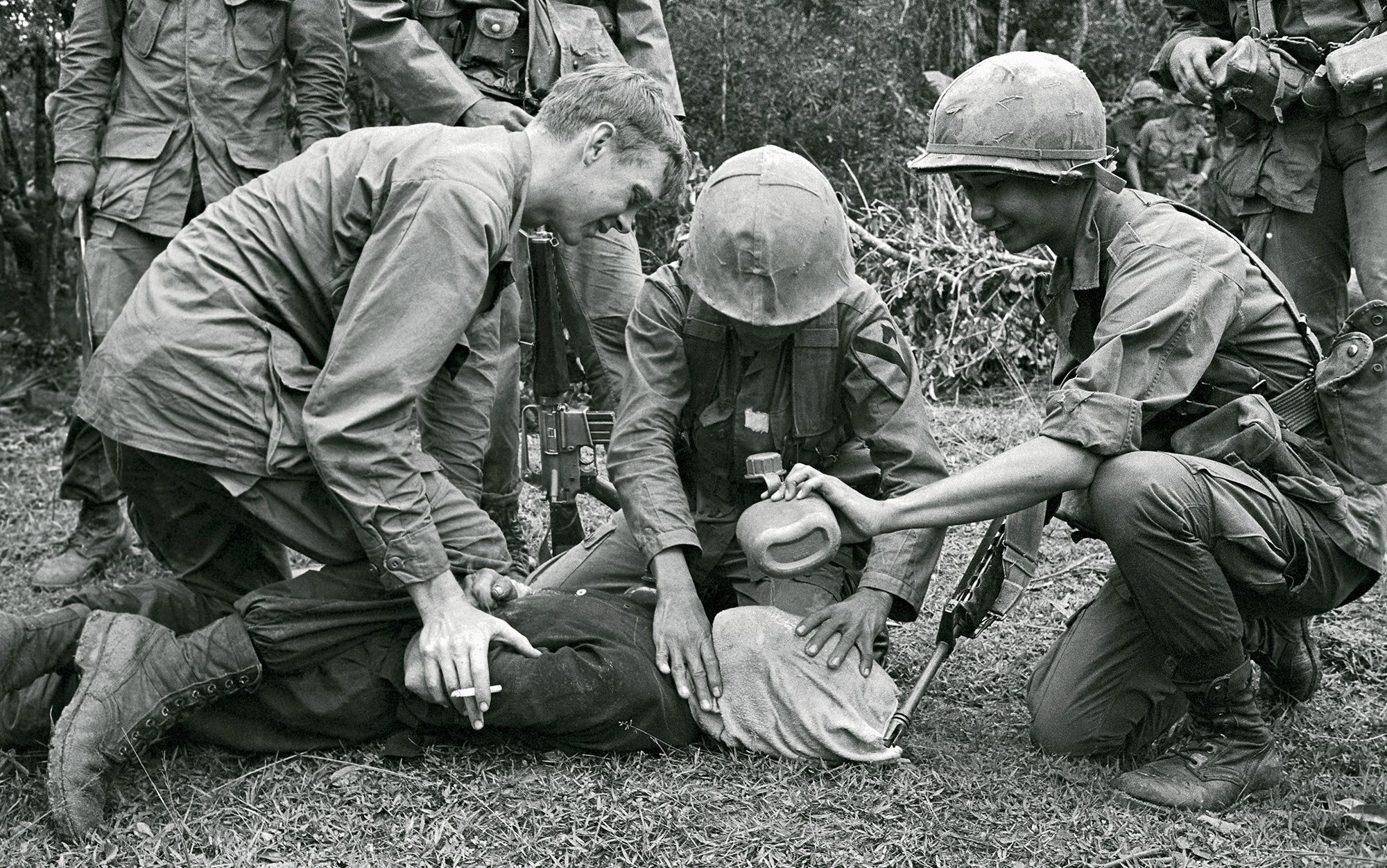 |
| The question is, how soon after he got "back to the World" did the blonde kid with the cigarette kill himself? |
"Torturing someone is not easy, and subjecting a fellow human being to torture is stressful for all but the most psychopathic. In None of Us Were Like This Before (2010), the journalist Joshua Phillips recounts the stories of American soldiers in Iraq who turned to prisoner abuse, torment and torture. Once removed from the theatre of war and the camaraderie of the battalion, intense, enduring and disabling guilt, post-traumatic stress disorder, and substance abuse follow. Suicide is not uncommon.
...
It is inevitable a relationship will develop over time between the interrogator and the person being interrogated. The question is the extent to which this relationship is desirable or undesirable. It could be prevented by potentially using interrogators who have low empathic abilities or by constantly rotating interrogators, so that they do not build up a relationship with the person who is being interrogated. The problem here, of course, is that this strategy misses what is vital about human interaction, namely, the enduring predisposition that humans have for affiliation to each other and our capacity to engage with others as human beings and to like them as individuals. And this in turn will diminish the effectiveness of the interrogation. It will even make it easier for the person being interrogated to game the interviewer, for example, giving lots of differing stories and answers to the questions. In turn, this makes detecting reliable information much harder. And significantly, the most empathic interrogators are also the most vulnerable to terrible psychic damage after the fact. In his book Pay Any Price (2014), The New York Times Magazine correspondent James Risen describes torturers as ‘shell-shocked, dehumanised. They are covered in shame and guilt… They are suffering moral injury’.
A natural question is why this moral and psychic injury arises in soldiers who, after all, have the job of killing others. One response might be that the training, ethos and honour code of the solider is to kill those who might kill him. By contrast, a deliberate assault upon the defenceless (as occurs during torture) violates everything that a soldier is ordinarily called upon to do. Egregious violations of such rules and expectations give rise to expressions of disgust, perhaps in this case, principally directed at the self.
This might explain why, when torture is institutionalised, it becomes the possession of a self-regarding, self-supporting, self-perpetuating and self-selecting group, housed in secret ministries and secret police forces. Under these conditions, social supports and rewards are available to buffer the extremes of behaviour that emerge, and the acts are perpetrated away from public view. When torture happens in a democracy, there is no secret society of fellow torturers from whom to draw succor, social support, and reward. Engaging in physical and emotional assaults upon the defenceless and eliciting worthless confessions and dubious intelligence is a degrading, humiliating, and pointless experience. The units of psychological distance here can be measured down the chain of command, from the decision to torture being a ‘no-brainer’ for those at the apex to ‘losing your soul’ for those on the ground."
No comments:
Post a Comment
Note: Only a member of this blog may post a comment.